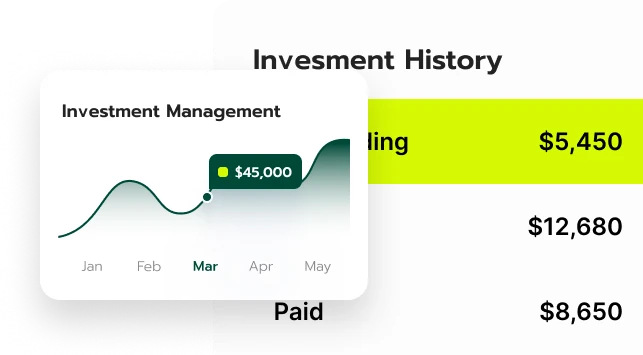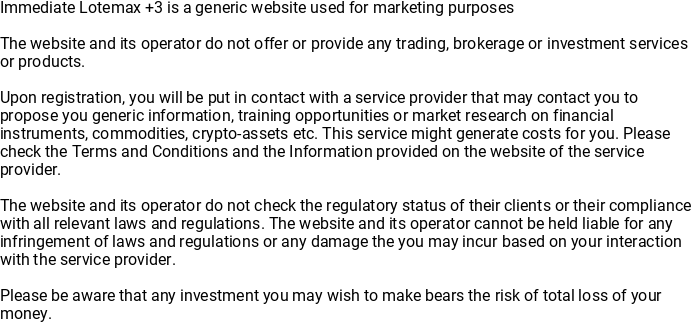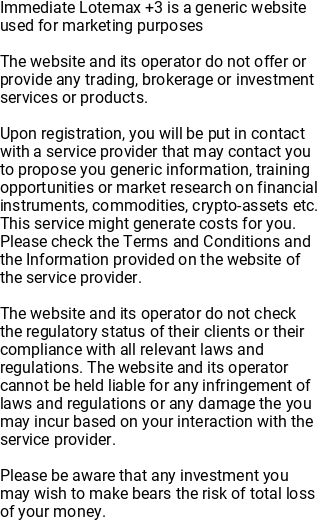TradeXo Global is an online solution that brings investment education institutes right to the average person. TradeXo Global matches people with these firms to fast-track how people access financial education.
After connecting with investment education firms through TradeXo Global, people begin to gain investment knowledge, dissect tough investment information, interpret investment data, and apply investment knowledge to their other endeavors.
Connecting with an investment education firm on TradeXo Global is easy. To connect, people should register by submitting their names, phone numbers, and emails. After TradeXo Global connects people, the representatives of those firms will contact users via phone to complete their registration and offer support.

TradeXo Global is a ready-to-use solution. The website has done the core work of searching for investment tutors, and it only calls people to register, regardless of their location in the world. After registration, TradeXo Global connects them immediately to investment tutors. Want to connect fast with an investment teacher? Register on TradeXo Global.
To allow easy access to acquiring investment education, TradeXo Global makes the registration and connection process to investment education firms free.
TradeXo Global does not request any form of payment from its users. It’s super easy to embark on a journey of learning and discovery in the financial world with TradeXo Global. Connect for free on TradeXo Global by signing up.
TradeXo Global ensures to connect people to investment education firms with various courses.
Learners can choose or seek guidance from their teachers on the investment courses to study as it suits their knowledge needs, careers, or jobs. Sign up on TradeXo Global to connect with investment teachers.

Registering on TradeXo Global does not require uploading sensitive documents, pictures, signatures, or payment receipts. Sign up on TradeXo Global by submitting only names, emails, and phone numbers.
TradeXo Global does not request guarantors before people can register to connect with an investment education firm. Connect with an investment tutor on TradeXo Global without a guarantor and start learning.
Anyone can register to connect with investment educators and learn on their websites without providing their credit scores. Sign up on TradeXo Global to connect and learn.
Investing is buying an asset and holding it for resale should it appreciate. Some investors also lend business owners money to get equity in their companies. At times, investing could be lending people money at an interest rate.
These investment forms show that investing is focused on making returns. Despite this, investors do not always make the expected returns due to risks arising from borrowers’ defaults, asset depreciation, or market conditions. To learn more about investing, its types, risks, and strategies, register on TradeXo Global to learn from investment education teachers.

TradeXo Global defines financial instruments as legal agreements that can be used to buy, trade, modify, or settle for monetary assets.
The three major types are cash, derivatives, and foreign exchange instruments. Market conditions often determine the value of cash instruments. Cash instruments include deposits & loans, and securities. TradeXo Global further explains other cash instruments below:
A derivative instrument gets its value from underlying assets such as stocks, stock indexes, currency, and resources. Derivative instruments include forwards, futures, interest rate swaps, and synthetic agreements for foreign exchange (SAFE). These instruments may hedge against unfavorable rate fluctuations and allow investors to lock in prices but are open to counterparty risk. Register on TradeXo Global to learn more.
A forward contract indicates when a person can buy or sell an asset at a given price and date. This contract usually has four components - asset (to buy or sell), expiration date, quantity, and price. A forward is traded over the counter, carries customizable terms, has zero upfront costs, and has a higher counterparty risk. To find out more, sign up on TradeXo Global.
Future
A future contract works like a forward, except they are settled daily and traded on standardized exchanges.
SAFE
A SAFE is a contract that specifies an exchange rate to use during a particular time.
Interest Rate Swap
An interest rate swap involves two parties swapping interest rates and agreeing to pay each other’s loan interest rates in different currencies.
The types of interest rate swaps are float-to-float, floating-to-fixed, and fixed-to-floating. Components of an interest rate swap include the notional amount, term, payment frequency, and benchmark rate. Register on TradeXo Global to connect with investment education companies and learn more about interest rate swaps.
A foreign exchange instrument (which consists of currency agreements) is represented on the foreign market. It can also be classified based on debt or equity. The currency agreements include currency swaps, outright forwards, and spots. Currency swaps involve exchanging currencies with different value dates. Learn more about outright forwards and spots by connecting with investment teachers on {TradeXo Global.

Investment value is the amount of money an investor is willing to pay for an asset. This value differs among investors. Investors might use the same valuation method yet arrive at different values. The measures of investment value are comparable sales, gross rent multiplier, cash-on-cash return, direct capitalization, discounted cash flow, and net present value.
An investor or individual appraiser decides a property’s value through comparable sales by contrasting similar properties on a per-unit basis. The gross rent multiplier helps determine investment value by multiplying a property’s yearly gross rent with the gross rent multiplier. The cash-on-cash return measure divides the first year’s pro forma cash flow by the total initial investment. Direct capitalization prioritizes a property’s income stream, while discounted cash flow calculates the net present value and/or the internal rate of return on the asset.
The net present value finds the difference between cash outflows and cash inflows over time. Measuring investment value allows investors to make buying decisions that match their investment objectives. It may also help them to make a return on investment. For more details, register on TradeXo Global.
Valuation determines a company’s or business’ fair economic value. Owners who want to create business value must know that a business’s value can only be determined at a specific time. That is, a business’ working capital, earnings, and market conditions change regularly and, as such, should be measured constantly.
Business owners should also note that the market dictates the proper rate of return for acquirers. Other determinants include financial costs, economic conditions, and industry types. Also, a business’s value depends on its ability to generate future cash flow. TradeXo Global discusses projecting statement income line items below:
Sales revenue is a company’s income from goods sold or services offered. Businesses can forecast sales revenue by studying growth rates from past years or modeling it as a gross domestic factor product or other macroeconomic factors. To learn more, connect with investment education companies on TradeXo Global.
Businesses can forecast gains by subtracting the cost of goods sold from revenue. To forecast the cost of goods sold, businesses can divide the current cost of goods sold by sales revenue. The derived percentage will forecast future percentages. Register on TradeXo Global to get more information.
The depreciation schedule shows the current opening and closing balances of property, plant, & equipment, and new expenditures. These values can help businesses predict depreciation expenses. Depreciation expenses can use a percentage of the opening balance or any depreciation accounting method. Sign up on TradeXo Global to learn more.
Interest expense is forecast by using the debt schedule. The interest expense is determined by multiplying the interest rate with the opening balance in each period. When calculated, the interest expense is added to the opening balance and reduced by any principal repayment to determine the closing balance. Learn more by signing up on TradeXo Global.
Stockholders equity consists of a company’s share capital, retained earnings, and dividend payments. Share capital is the amount a company receives from its transactions with shareholders. A company can also receive its share capital on a subscription basis.
Retained earnings are reinvested into a business instead of being paid to stockholders as dividends. The reinvestment could be for debt servicing, funding working capital, or buying fixed assets. Dividend payment involves paying shareholders from the company’s earnings after board declaration. Want to know more? Register on TradeXo Global.
Registration rights allow investors to ask companies to register their securities for transparency. The types of registration rights are demand and piggyback. Demand registration rights allow investors to request companies to become publicly traded entities.
These rights require the registering company to be based in the U.S., its territory, or the District of Columbia and have a minimum of $75 million in public float.
The company must also not have defaulted divided payment and should have traded a minimum of $1 billion in convertible shares, excluding common equity. Piggyback registration rights allow investors to register their stocks when a company launches an initial public offering (IPO). Sign up on TradeXo Global to learn more.
A ten bagger is an investment that yields ten times return on an initial investment. The characteristics investors look for in ten baggers are the base effect, company valuation, and fair operating environment. Investors often use three principles to seek returns on investment. They are starting small, investment diversification, and long-term holding. Connect with investment tutors on TradeXo Global to learn more.
Haircut means reducing an asset’s value to calculate its collateral level, margin, and capital requirements. Sign up on TradeXo Global to find out more.
An expected return is the gain an investor expects on a particular investment. Find out more by registering on TradeXo Global.
Paper trading is a simulated trading that does not require real money. Register on TradeXo Global to learn more.
Market capitalization is a company’s outstanding shares’ most recent value. Connect with investment education firms on TradeXo Global for more details.
Trade orders are the different orders that can be traded on exchanges for financial assets. Want more information? Register on TradeXo Global.
Counterparty risk is the possibility that one person in an investment will not fulfill their part of a financial contract. Sign up on TradeXo Global to learn more.
Education opens people’s minds to new ideas, solutions, and approaches applicable to their lives, jobs, and careers. One of the most potent aspects of this is investment education. Investment education strategically throws light on financial, business, and economic matters. To get deep insights on these matters, register on TradeXo Global to connect instantly with investment education firms.

| 🤖 Joining Cost | No fees for registration |
| 💰 Operational Fees | No costs whatsoever |
| 📋 Registration Simplicity | Registration is quick and uncomplicated |
| 📊 Focus of Education | Lessons on Cryptocurrencies, Forex Trading, and Investments |
| 🌎 Countries Covered | Excludes the USA, covers most other countries |


